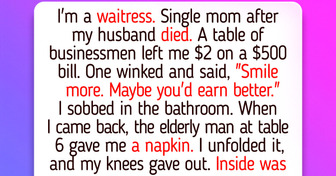Time to start job hunting for a new job.
I Refused to Go to Work After a Family Emergency—HR Got Involved
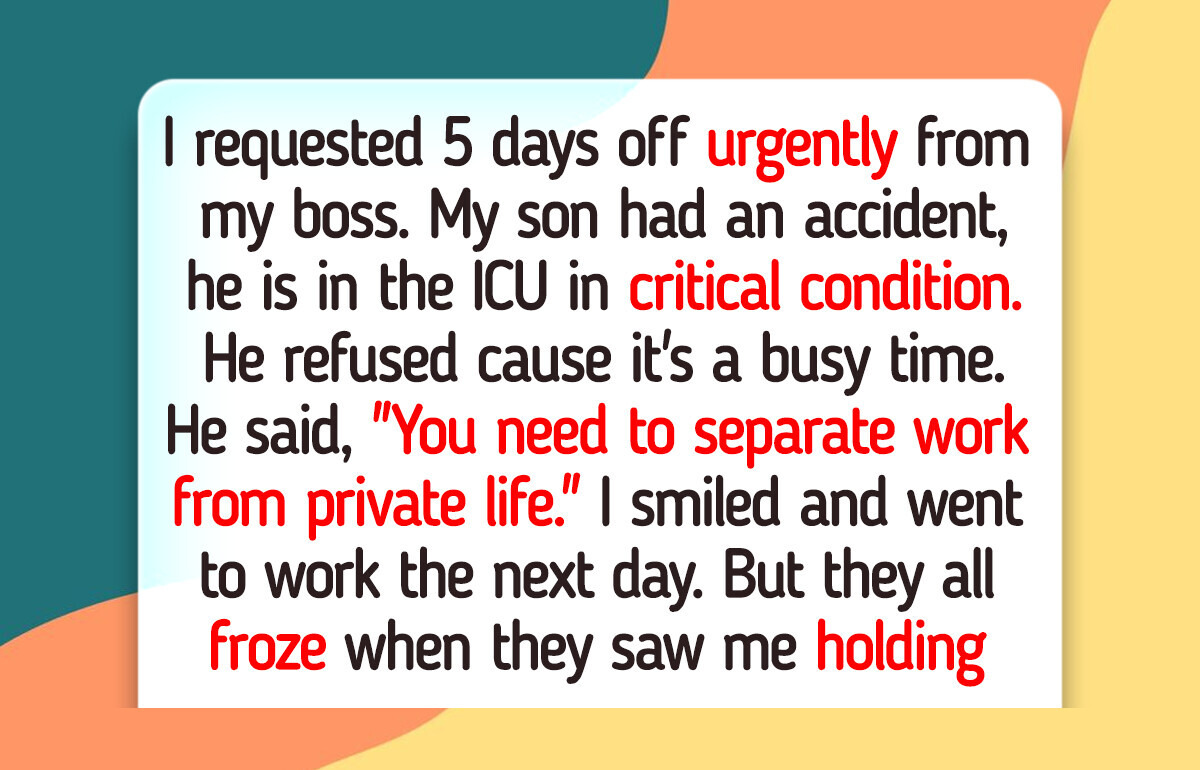
When family emergencies collide with strict work rules, many people face impossible choices. Balancing compassion and professionalism can reveal how humane a workplace truly is. One reader shared her story after refusing to work during a personal family crisis.
The letter:
Hi Bright Side,
I went to my boss to urgently ask for 5 days off.
The night before, my 17 y.o. son had a terrible car accident. He’s now in the ICU and in critical condition.
But my boss refused. He said it was a busy week — we had projects to deliver to three different clients, and I had presentations to prepare. He told me, “Sorry, but I can’t give you a week off on such short notice. You need to separate work from personal life.”
I just smiled and came to work the next morning.
When I arrived, I was holding a huge bouquet of flowers. I told my boss it had been sent by one of our clients as a “get well soon” gift for my son. He got confused and asked how the client knew about the accident.
What he didn’t know was that the previous day, without telling anyone, I had emailed all our clients.
I explained that I wouldn’t be available this week because of my son’s accident.
Now, if my boss made me come to work, he’d be the one who looked bad — forcing an employee to work while their child was in the ICU.
5 minutes later, HR called me in. They said it was unprofessional to contact clients “behind the company’s back.”
They told me I had put them in a difficult position and that they’d now have to give me the days off and the projects will be delayed. Those missed deadlines would cost the company extra money.
I told them, “That’s not my problem. I asked my boss for leave, and he refused.”
Did I do the right thing, or should I have handled this differently?
Sincerely,
Linda
Thank you, Linda, for sharing such a difficult story with us. It’s heartbreaking to imagine what you’re going through, and it’s clear your decision came from a place of love and desperation, not defiance.
Still, situations like this can easily spiral out of control in a workplace setting. Here is our advice to you:
Protect your job — but document everything.

Definitely document everything wherever you work!
You were right to prioritize your son. But since HR is now involved, protect yourself. Write a brief email summarizing the timeline: when you asked for leave, what your boss said, and how you informed clients only after being denied. Keep it factual and professional.
If the company ever tries to take action against you, that record could save your job — and your reputation.
Use empathy as a shield, not a weapon.

I had same scenario. I worked more hours than my 9 to 5 hours. They refused my leave request, so I put in my months notice as per contract.
They hired another staff and I handed over plus a file of detailed process on the various projects I was managing.
They hired two more people - but still unable to meet project deadlines - they lost the projects and ended up shutting down thst department.
Your email to clients put pressure on your boss publicly, but it also embarrassed the company. To recover, you could send a short note of gratitude to those clients thanking them for their understanding, copying HR.
It shows maturity and reminds everyone that the company’s reputation wasn’t damaged — it was supported by their compassion. That one gesture might rebuild trust internally.
Reevaluate where your loyalty belongs.
This event revealed something serious: your boss values deadlines more than human decency. Once your son recovers, think about whether you want to keep working for someone who treats emergencies as inconveniences.
Update your résumé, quietly reach out to your clients, who clearly respect you, and start exploring opportunities elsewhere.
Turn this into change for others.
When the crisis settles, propose a formal “emergency leave” policy to HR. Many companies have no structure for dealing with sudden personal disasters.
Framing your experience as motivation to protect future employees could restore your standing and ensure no one else has to choose between work and family in a crisis like yours.
We all need empathy during tough times, but too often, kindness is mistaken for weakness. These 12 stories remind us that kind people aren’t vulnerable — they’re the ones with the greatest strength to survive.
Comments
Leave this work girl! LEAVE
Related Reads
I Refuse to Give My FIL a Grandbaby, I’m Not a Baby-Making Machine
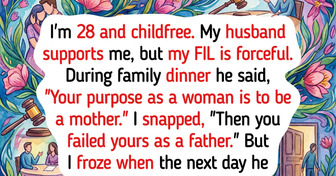
16 Stories That Show Kindness Is a Safe Refuge in the Middle of the World’s Chaos
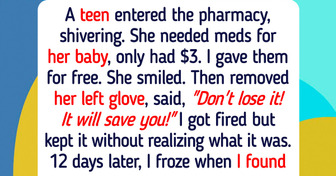
My Parents Told Me I’d Never Own a Home, Now They Want to Move In
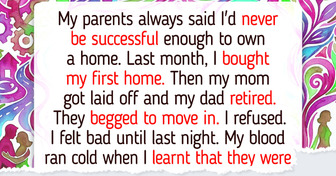
I Refuse to Let My Sister Get Away Without Repaying My Money, I’m Not Charity
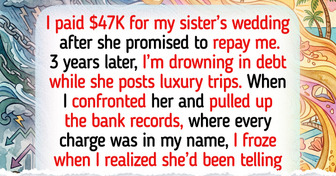
I Cut Off My Adult Son—I’m His Father, Not His Never-Ending Wallet
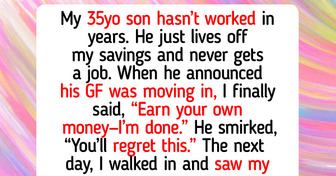
15 Stepchildren Who Finally Saw Their Stepparents as Real Family
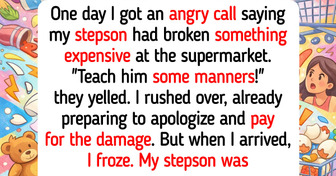
13 Stories of Quiet Kindness That Show Superhuman Strength in Ordinary People

15 Moments That Prove Quiet Kindness Is What Keeps the World Together
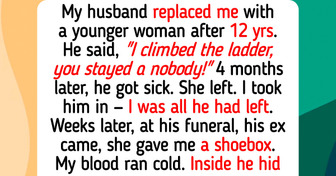
I Refused to Let My Boss Track My Every Move—I Don’t Need an “Ankle Monitor”
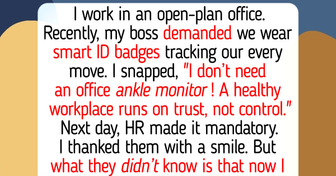
13 Life Moments That Prove Kindness Costs Little but Goes Far

I Quit After My Boss Denied Me My Lunch Break
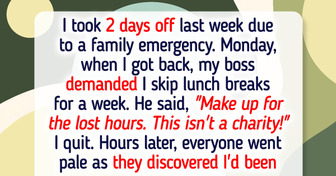
15 Moments That Prove Kindness and Compassion Are the Only Currencies That Never Lose Their Value
